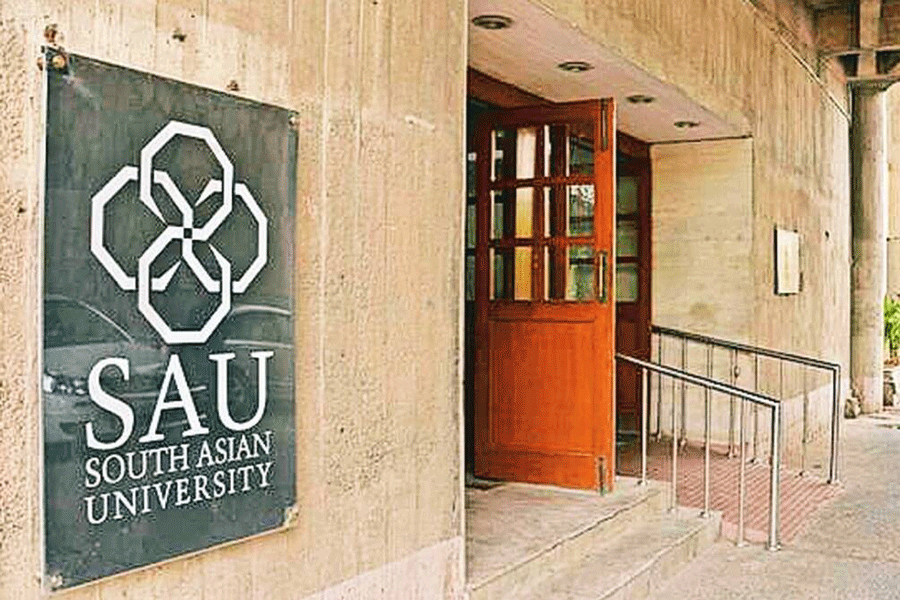An international university in Delhi has taken action against a PhD student and his supervisor after they offered a research proposal on the ethnographic study of Kashmir, aligning with the Centre’s policy of not allowing any critical study on socio-cultural and economic issues.
The action by South Asian University (SAU) — established in 2010 as a joint initiative of eight member nations of the South Asian Association for Regional Cooperation (SAARC) — has left several academics worried about the gradual shrinking space for objective research that is essential for society.
The supervisor, Professor Sasanka Perera — a Sri Lankan national — has applied for voluntary retirement from the university after the incident.
University sources said the student had prepared the synopsis of the ethnography on Kashmir. The proposal submitted in November last year was approved by the research advisory committee comprising three faculty members of the sociology department. Perera and two other faculty members of the department were part of the research committee.
The proposal was sent to the board of studies for approval.
Sanjay Chaturvedi, the dean of the school of social sciences and a professor of international relations, is learnt to have objected to the choice of the topic. According to the university sources, the authorities viewed this topic as “anti-national” and asked the research committee members how they approved it.
The student and Perera were issued showcause notices in May. Sources said the student is learnt to have tendered an apology. Perera told the authorities that being a Sri Lankan national, he was not aware of the nuances of the Kashmir issue. He wrote that two other faculty members as part of the research committee had given the green signal. The university authorities interrogated the two other faculty members also. It also set up an inquiry on this issue.
An email was sent to the SAU’s public relations officer Aheibam Prahlad to understand the perspectives of the university on the issue.
“The University stands by the SAARC Intergovernmental Agreement, Rules, Regulations and Bye Laws,” said the response without elaborating further.
Two faculty members of the university said that the actions of the administration were arbitrary and the failure of the department to defend its own committee’s decision was also to be blamed.
“The department should have taken a firm stand as a collective on this issue and told the authorities not to interfere in the academic area of a subject on which they had little expertise. This is a violation of the academic freedom of the department. But the silence of the department left the student, the supervisor and the research committee members vulnerable,” he said.
Another faculty member said: “The researchers are expected to undertake a scholarly enquiry on burning issues in the SAARC region. When we discuss all types of issues concerning people, there will be better cooperation in the region. But not allowing research by rejecting the proposal is against the legacy of the university.”
Rajesh Jha, a former executive council member of Delhi University, said that the university is supposed to see if the student has followed scientific research methodology instead of passing judgement on a study.
“The government wants the universities to act as its loudspeakers. The government wants conformist studies. The academic leaders appointed in universities are happily complying. So universities are prejudging the outcome of research,” Jha said.










